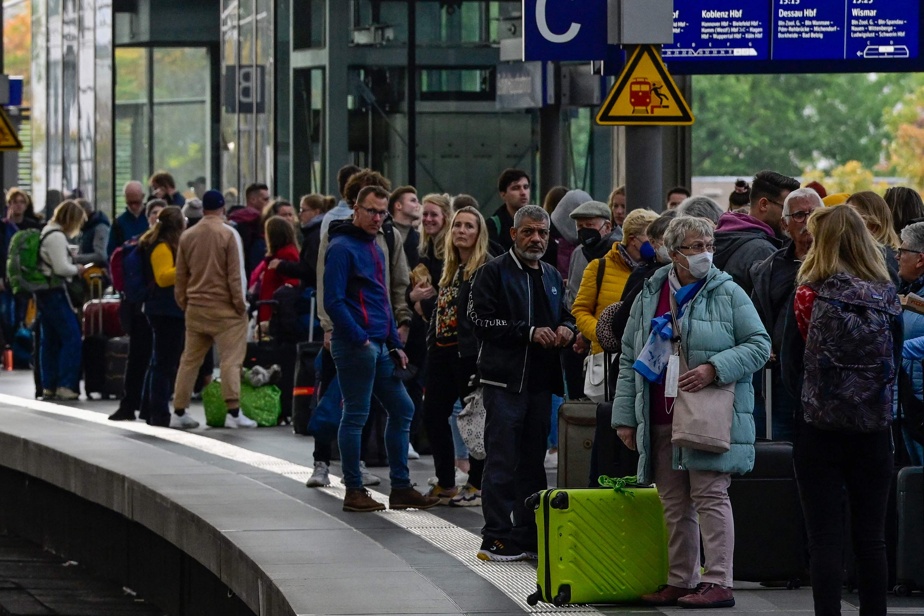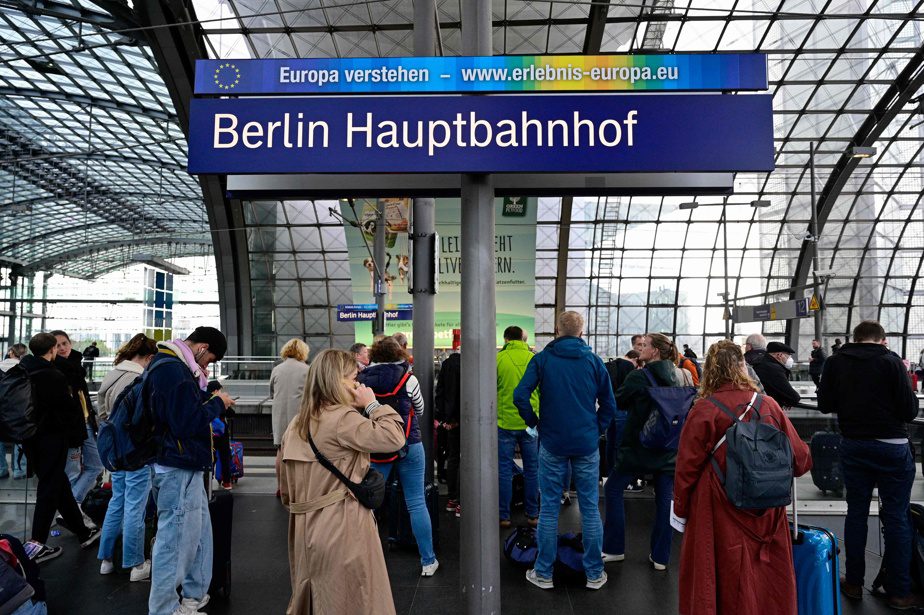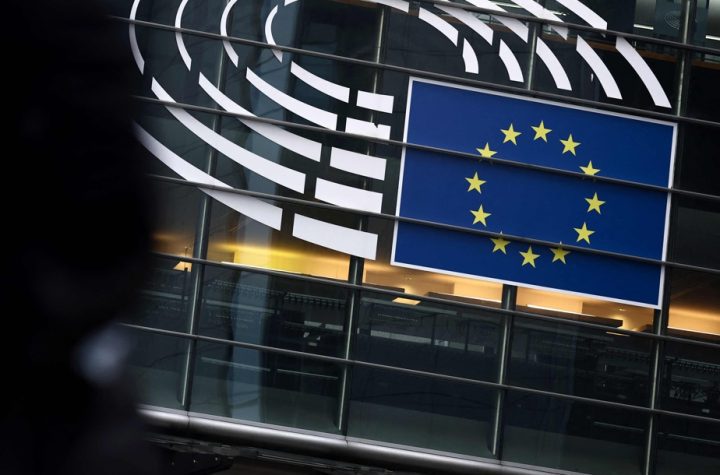
(BERLIN) An “act of sabotage” targeting radio cables brought rail traffic to a standstill in northern Germany on Saturday morning.
Posted at 11:10 am
For about three hours, in the north of the country, all high-speed and regional connections, as well as freight, were disrupted.
After a partial restoration of traffic, Deutsche Bahn blamed “vandalism” for the breakdown.
The vandalism targeted “cables essential for the movement of trains”, the German company told AFP.
“Cables necessary for the operation were cut voluntarily and on purpose,” Transport Minister Volker Wissing confirmed in a statement to the press.

Photo by Aud Anderson, Agence France-Presse
German Transport Minister Volker Wissing
“It is clear that this was a targeted and deliberate act”, he said, adding that the motive was “still unknown”.
The federal police have taken over the investigation.
It is more precisely the GSM-R radio network of the trains used to communicate with the drivers, but more generally, the “central interface between the trains and the infrastructure” related to the control, according to Spiegel, the first media to discuss , citing security sources, suspicions of sabotage.
Stranded passengers
“We now know that the cables were deliberately cut in two places,” Wissing said of the “obviously premeditated act.”
“Fiber optic cables” were thus cut in Berlin and in Germany’s most populous state of North Rhine-Westphalia (West), citing the popular daily Bild for its part.
Such a move would not be available on a first-come, first-served basis and would require “specific knowledge” of the rail system, underline sources close to Deutsche Bahn. picture.
The incident particularly disrupted relations between Berlin and parts of the western and northern parts of the country, such as the cities of Schleswig-Holstein, Hamburg and Bremen, or parts of Lower Saxony and Rhineland.-North-Westphalia.
The Berlin-Amsterdam link has also been suspended.
As a result, thousands of passengers were stranded at the stations on Saturday morning.
Deutsche Bahn warned that there would still be cancellations and delays during the day on Saturday, even if train services were restored.
Strong supervision
The law comes two weeks after vandalism targeted the Nord Stream 1 and 2 gas pipelines linking Russia to Germany.

Photo by John McDougall, Agence France-Presse archives
The German government has strengthened the protection of its critical infrastructure in the process.
Deutsche Bahn is regularly characterized by numerous delays on its lines. Titanic announced in early September that work to upgrade its tracks would essentially involve replacing 137,000 concrete sleepers.
A train derailment in the Bavarian Alps in early June that killed five and injured more than 40 provided a tragic illustration of the poor state of German lines, tied to years of investment.
These failures have fallen even worse in recent months as the government has encouraged Germans, the car’s greatest adherents, to take the train by offering regional, cheaper tickets.








